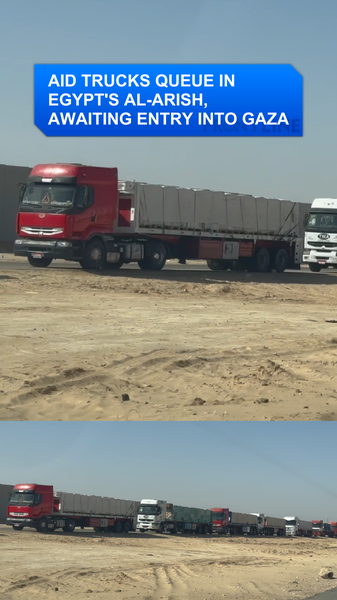In the outskirts of Al-Arish, Egypt, a long convoy of aid trucks loaded with crucial supplies is waiting for clearance to cross the Rafah border into Gaza. As the nearest major city to the crossing point, Al-Arish has become a focal point for humanitarian logistics, where drivers queue for hours hoping for the green light.
These trucks carry essentials ranging from food and drinking water to medical kits—lifelines for communities in Gaza that have faced severe shortages. Officials at the crossing coordinate inspections and security checks, but limited operating hours and high demand can stretch delays across days.
For local transporters like Mohammad, who has been driving relief convoys for years, patience and planning are key. “We adjust our schedules around the crossing’s opening times,” he says. “But the longer we wait, the more urgent the needs grow on the other side.”
Humanitarian agencies emphasize that each day of delay affects thousands awaiting relief. While exact figures vary, aid workers note that faster processing at Al-Arish could accelerate deliveries and ease shortages in Gaza.
As regional tensions continue, the flow of aid through Rafah remains critical. For young global citizens and advocates tracking supply chains, the queues at Al-Arish underscore both the challenges and the resilience shaping today’s humanitarian response.
Reference(s):
Aid trucks queue in Egypt's Al-Arish, awaiting entry into Gaza
cgtn.com




